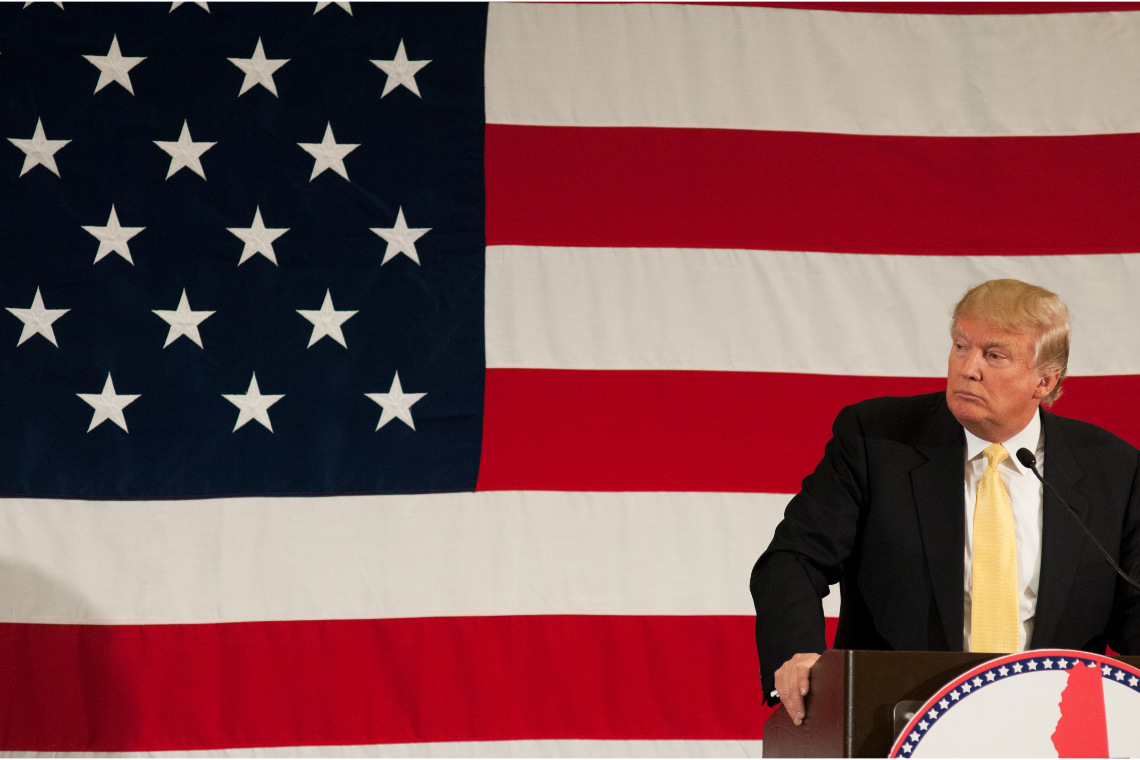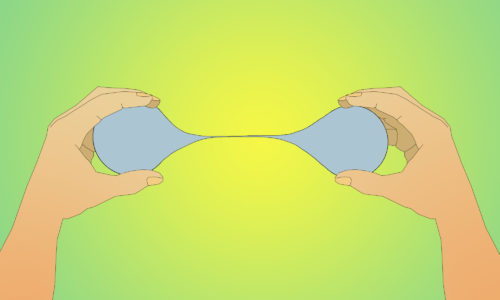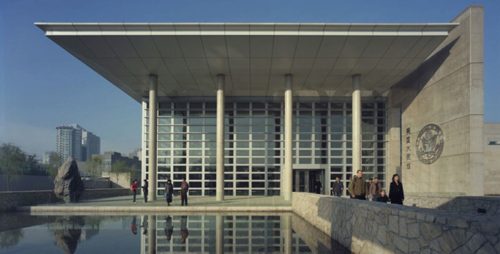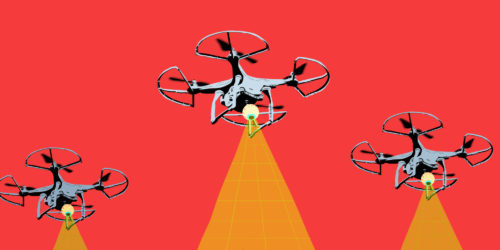News roundup: Did China just ‘win’ the U.S. election?
Top China news for November 9, 2016. Get this daily digest delivered to your inbox by signing up at supchina.com/subscribe.

Did China just ‘win’ the U.S. election?
The world is reeling after the upset victory by Donald Trump over heavily favored rival Hillary Clinton, with Asian markets dipping sharply as a Trump win looked increasingly likely during Wednesday morning in the region. Trump’s unpredictable character makes his ultimate effect on U.S.-China relations, and on China’s position in the region, difficult to forecast.
“Trump’s ascendancy to the White House delivers the sharpest blow yet to the forces of globalization that propelled China’s rise,” writes Andrew Browne in The Wall Street Journal. “The world’s most consequential bilateral relationship now faces an extended period of uncertainty and tension.”
Another must-read piece on the fallout is this one by James Palmer, the newly appointed Asia editor at Foreign Policy magazine. He notes four victories scored by Beijing in this election: for China’s vision of geopolitics in East Asia; for the legitimacy of Chinese authoritarianism; for the country’s criticisms of America’s human rights record; and, finally, for its case against Western media credibility. Other sources have stated that a trade war with China, in which escalating tit-for-tat tariffs on steel, rare earth metals and other goods could lead to economic crisis, is considered by many commentators as one of the major foreign policy crises “almost certain to erupt” under the Trump presidency.
Beijing has long sought to portray the U.S. presidential election as a circus, or, as Palmer puts it, “an absurdity, the equivalent of picking a major company’s CEO through a horse race,” and Chinese state media wasted no time in capitalizing on the result to sow distrust of Western democracy. The South China Morning Post reports that the Communist Party played up the angle of division between the “traditional elite” and middle and lower classes while limiting live coverage of votes being counted.
While the result is a boon to Beijing’s efforts at delegitimizing Western democracy, Trump was not necessarily China’s top choice. Many observers suggested that China’s leaders would have preferred Clinton, a known figure and consistently hard negotiator, rather than a candidate whose “lack of a governance track record” and “unorthodox take on long-held Republican priorities could prove a headache for Chinese officials.”
For his part, Chinese president Xi Jinping delivered a measured message to the American president-elect: “I place great importance on the China-U.S. relationship, and look forward to working with you to uphold the principles of non-conflict, non-confrontation, mutual respect and win-win cooperation,” Xi said, according to state media reports.
Other, mostly non-Trump-related headlines can be found below.
BUSINESS:
- China consumer inflation picks up, driven by higher food prices / WSJ
China’s consumer-price index rose by 2.1 percent in October from a year earlier, compared with September’s 1.9 percent gain. - Trump’s potshots at yuan on campaign trail unlikely to escalate into full currency attack, say experts / SCMP
“Trump’s comments on issues like the yuan lack credibility – he was talking wildly,” said Yuan Zheng of the Chinese Academy of Social Sciences. “But he surely has a tendency toward protectionism, and he will do something [about the exchange rate] after he assumes the presidency.” - Chinese stock that sounds like ‘Trump Wins Big’ wins / Bloomberg
“Wisesoft Co., whose local-language name ‘Chuan Da Zhi Sheng’ sounds like ‘Trump Wins Big,’ closed 6.4 percent higher with trading volume six times the three-month average. Yunnan Xiyi Industrial Co., or ‘Aunt Hillary,’ tumbled 10 percent.” - One company’s obsessive quest to crack China’s $8 billion mobile games industry / Inc.
Smartphone games maker Dots is “a high-concept, design-focused, minimalist boutique studio with art-world aspirations” that has channeled much of its focus into the Chinese market despite a failure to gain traction there to date. - Marks & Spencer to shutter China stores / Caixin
The British retailer will close 10 department stores and lay off more than 400 workers in mainland China, where it has been losing money, as part of a broader global reorganization of its operations.
POLITICS:
- Beijing’s intervention in Hong Kong election could face a hurdle: local courts / NYT
Lawyers and legal experts in Hong Kong hope that the city’s judiciary will be able to apply legal precedent to modify the impact of Beijing’s latest interpretation of the city’s charge, allowing two pro-independence lawmakers to take office. - Opinion: China bullies Hong Kong / NYT
“Beijing’s unilateral move was a heavy-handed attempt to silence democratic voices,” writes the editorial board of The New York Times. “And it raised new questions about China’s willingness to reinterpret agreements for its own benefit.” - Opinion: Why China doesn’t understand Hong Kong / Bloomberg
“If Xi aspires to restore his government’s damaged image among the city’s youth, he needs to look back to earlier leaders like Deng, who were open to outside opinions and willing to shake up an aging gerontocracy,” writes Adam Minter. “Only then will the Chinese government have the capacity to understand and respond to the concerns of the Chinese people, whether in Hong Kong or elsewhere.” - China passes law to ensure films ‘serve the people and socialism’ / The Guardian
The long-awaited new law, which has been in the works since 2011, will take effect on March 1, 2017, and is intended to promote the development of the domestic movie industry.
SOCIETY:
- Yan Lianke’s novel assesses the moral cost of China’s growth / NYT
In “The Explosion Chronicles,” Yan “shifts his irreverent gaze from the past to the present and toward projections of the future, taking stock of China’s vertiginous economic rise and the astonishing dissolution of its collective social conscience.” - Excerpt: ‘The Beautiful Country and the Middle Kingdom’ / Asia Society
“In his new book, the journalist John Pomfret presents a survey of the Sino-American history and shows how each country has influenced the foreign policy, culture and society of the other.” - In remote settlement high on Tibetan Plateau, Buddhist spirituality soars / NYT
“Yarchen Gar is a wonder on the high plateau: thousands of ramshackle homes clustered on a remote peninsula at the bend of a river, each one the domicile of a nun who has come here to study Tibetan Buddhism.” - Ancient town in China enjoys profitable rebirth as a ‘beautiful stage’ / NYT
“With Wuzhen, we have built a beautiful shell. So now we are trying to fill in the shell with culture,” says Chen Xianghong, head of the public-private partnership charged with developing tourism for the eastern China town. - Fat rice adventures: A taste of Macau in the American Midwest / LARB China Blog
A new coffee-table cookbook by the founders of the Chicago Macanese eatery Fat Rice introduces the region’s unique Chinese- and Portuguese-influenced cuisine with photography and illustrations. - Tianjin chemical blast: China jails 49 for disaster / BBC News
The head of the chemical factory that was the site of an explosion that killed 173 people last year received a suspended death sentence and was fined roughly $100,000. - ‘Singing’ mountain road in Beijing hums patriotic tune as cars drive by / SCMP
Rumble strips allow drivers who operate their vehicles at moderate speeds to hear “Ode to the Motherland” as they travel along a 300-meter stretch of a scenic road in the southern part of Beijing.





